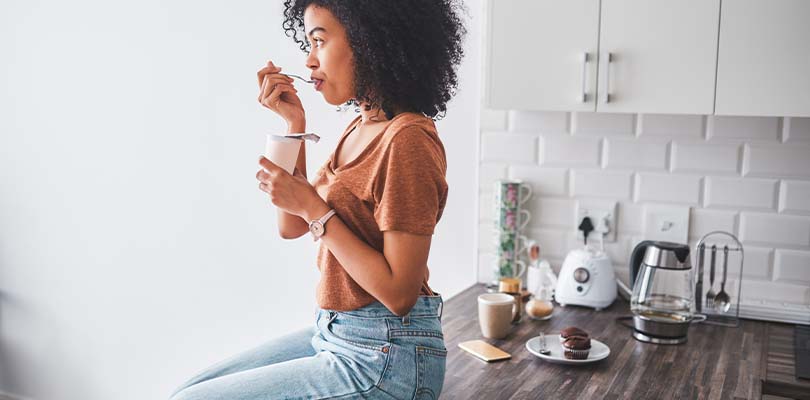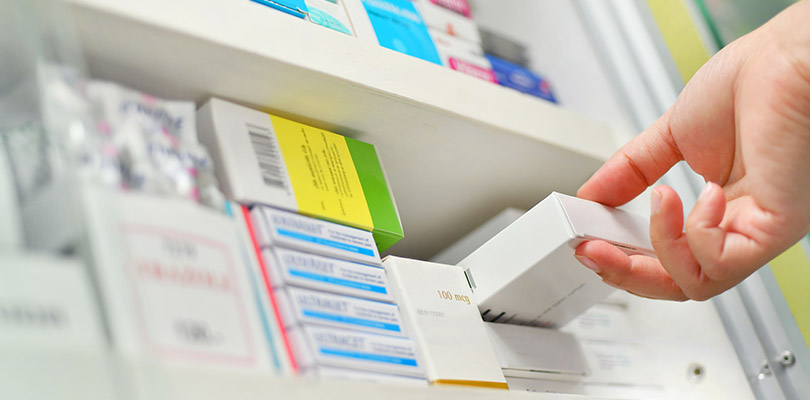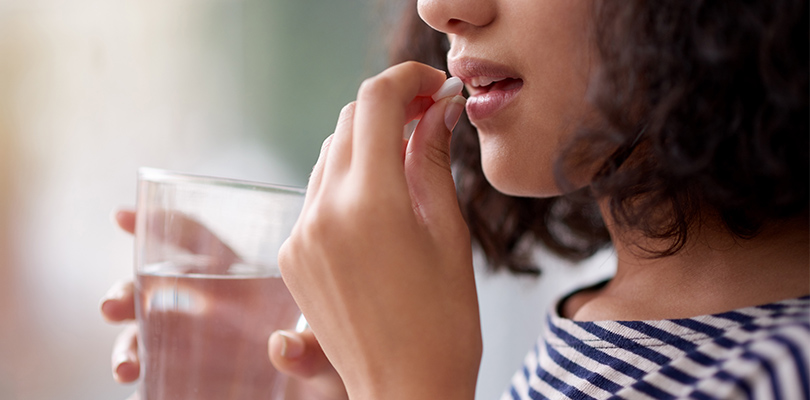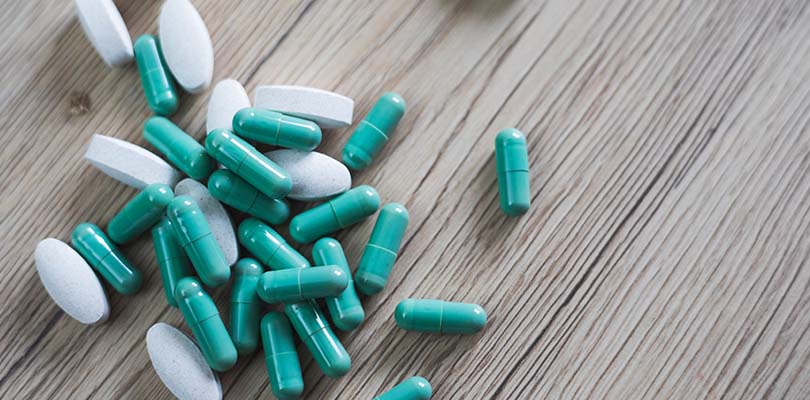IBS With Constipation
Irritable bowel syndrome (IBS) is an intestinal disorder that is especially common with women – especially those under age 50. The symptoms of IBS may come and go, but typically involve abdominal pain, gas, bloating, constipation, diarrhea, or both.
For many people, it’s possible to control IBS with changes in diet, lifestyle and stress management.
For those with more severe symptoms, medication and counseling are also helpful. Anxiety and depression are often part of IBS, so counseling to help with these issues can also help IBS.
What Triggers IBS With Constipation?
The precise cause isn't known, but these factors seem to play a role:
- Food. Doctors don’t fully understand the role of food allergy or intolerance in IBS. A true food allergy will rarely cause IBS. However, many people have IBS symptoms when they eat certain foods or drink certain beverages. The worst offenders seem to be wheat, dairy products, beans, cabbage, citrus fruits, milk and carbonated drinks.
- Stress. A time of increased stress tends to worsen IBS symptoms. However, stress doesn’t seem to cause symptoms, and aggravate them.
- Hormones. Since women are twice as likely to have IBS, it’s believed that hormonal changes are at work. Many women find that around their menstrual periods, their IBS symptoms are worse.
What’s at Work With IBS-C?
When you have IBS with constipation, the muscle contractions in the intestine slow down – which slows down the food passage, leading to dry, hard stools. When contractions are stronger and last longer than normal, they will cause bloating, gas, and diarrhea.
Your nervous system is also upset, including nerves in your digestive system. These will cause greater discomfort when your abdomen has gas or a stool. The brain-to-gut nerve connections go awry, causing pain, diarrhea or constipation.
Intestinal inflammation occurs with IBS and causes greater numbers of immune-system cells in the intestines. This immune-system response is associated with pain and diarrhea.
If you have a severe bout of diarrhea (gastroenteritis) caused by bacteria or a virus, your IBS will be worse. IBS might also be associated with excess bacteria in the intestines (bacterial overgrowth).
Changes in bacteria in the gut (microflora) will also affect your intestinal health. Microflora is the "good" bacteria that live in the intestines. Research indicates that people with IBS might have different gut microflora than in healthy people.
When to See a Doctor About IBS
If you have a persistent change in bowel habits, talk to your doctor about it. It may be IBS, or it could be colon cancer. More-serious signs and symptoms include:
- Weight loss
- Diarrhea at night
- Rectal bleeding
- Iron deficiency anemia
- Unexplained vomiting
- Difficulty swallowing
- Persistent pain that is not relieved by passing gas or a bowel movement.
Treating IBS With Constipation
Most people need a mix of therapies to control their IBS-C. Changes in diet, exercise, stress management, and medication are all known to work well. The goal is to ease the bloating, cramps, and pain as well as the bowel problems.
You need to see a doctor to find out exactly what’s causing your symptoms. Also, there are health risks that come with taking laxatives and supplements regularly.
Changes In Diet
Water, food, and fiber can have a real effect on your bowel problems. These tips will help prevent constipation:
- Drink lots of water. Dehydration will make your symptoms worse. If you exercise a lot (and sweat more) be especially careful about drinking more water.
- Avoid foods that cause constipation. Fatty meats and other high-fat foods can lead to constipation and other IBS symptoms. Milk, cheese, and other dairy products can also trigger IBS-C.
- Get plenty of fiber. When you switch to a high-fiber diet, you can go a long way toward preventing constipation.
Fiber is plentiful in fruits, vegetables, beans, and whole-grain products. Wheat breast, pasta, and brown rice are good when you have IBS-C. A fiber supplement (in a pill or a powder) can ensure you’re getting enough fiber every day. Fiber reduces constipation by softening stool, making it easier to pass.
When you add more high-fiber foods to your diet, do it gradually. A sudden dose of too much fiber can also cause problems. Some high-fiber foods may not agree with your intestines. Experiment to find those that suit you.
IBS is a health condition that affects the large bowel, causing pain and cramping. IBS and mental health are closely related. Here's how.
IBS-C can benefit from these: Dried plums, prune juice, ground flaxseed, and water, all of which help loosen bowels.
Also, stay away from coffee, carbonated drinks, and alcohol. They can slow down your stools. Chips, cookies, white bread, white rice, and other processed foods can have the same effect.
Keep a symptom journal to figure out the foods your system can handle. Just jot down your IBS symptoms, then note the type and amount of foods you ate during the meals before the symptoms started.
Fiber Supplements include:
- Wheat bran
- Corn fiber
- Calcium polycarbophil (Fibercon)
- Psyllium (Fiberall, Metamucil, Perdiem, and others)
These may help with constipation, but they don't seem to help with other IBS symptoms such as stomachaches, discomfort, and swelling. The extra fiber may make belly pain, bloating, and discomfort worse.
Use Laxatives
Laxatives may work well for occasional constipation. But taking them regularly can be harmful. And they don't treat all IBS symptoms such as bloating and stomachaches.
Read laxative labels carefully, as some are habit-forming and possibly harmful in the long run.
Stimulant laxatives include Correctol, Dulcolax, Ex-Lax, Senokot, castor oil, and the plant cascara.
The active ingredient in these laxatives triggers muscles in the bowels to contract, which moves the stool through. Talk with your doctor before you take these medications. Over time, a laxative can damage nerves in the colon wall, and the drugs may stop working.
Osmotic laxatives include lactulose, which is prescribed by a doctor, and Miralax, which you can buy over the counter. These laxatives pull water back into the colon to soften the stool, making it easier to pass - which only helps with constipation.
In some cases, the laxative may make symptoms worse with side effects like diarrhea, dehydration, and bloating. Osmotics are considered relatively safe for long-term use for some people with IBS-C but talk to your doctor before you use them regularly.
Take Prescription Medication
Medications can help when other treatments have not worked. A low-dose antidepressant (even if you’re not depressed) or antispasmodic drugs such as dicyclomine (Bentyl) and hyoscyamine (Levsin) can help ease symptoms
Stress Management for IBS
Studies have shown IBS symptoms can improve when tension or worry are removed. Regular exercise is beneficial in lowering stress, as are yoga and meditation. Get a massage, listen to music, take a bath, or read a good book.
Behavioral therapy teaches you how to change your reaction to events. The therapy helps people avoid overreacting to stressful situations and people. The American College of Gastroenterologists says behavioral therapy can work well for many IBS symptoms.
Try Alternative Treatments
Acupuncture and herbs have helped many people relieve their symptoms. However, there isn't much scientific evidence that these therapies work for IBS.
If you want to try acupuncture or herbs for your IBS-C, talk with your doctor first. Some herbs can affect how other medications work.
Finding What's Right for You and Your IBS-C
Work with your doctor to choose the right treatment plan for you. Not every treatment works for every person. You may need to try several different therapies, or different combinations before you find what works.
Also, your symptoms may change with treatment. You may feel constipated and swollen now, have diarrhea and cramping in a few weeks, and then go back to being constipated.
With proper treatment – and some patience – you can manage your IBS-C symptoms and lead an active life.







